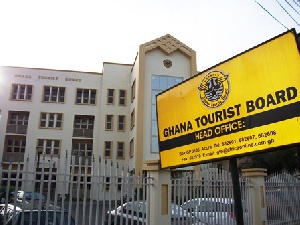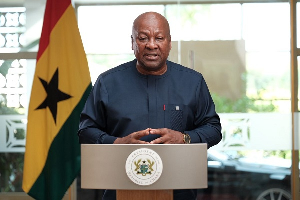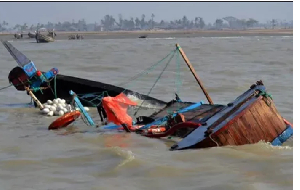The Ashanti Regional Manager of the Ghana Tourism Authority (GTA) Mr. Ekow Sampson has served a strong notice to operators in the hospitality and tourism industry operating without licence to begin the processes to become legally recognised or face being put out of business.
This notice came as he revealed that his outfit is preparing to embark on a massive exercise in the Ashanti Region, to flush out all unlicenced operators in the hospitality and tourism industry as mandated by law.
He said in addition to flouting laws that regulate the operations of those in the hospitality and tourism industry, the safety of patrons of these operators may be in danger since the needed processes have not been carried out to permit their operations.
These illegal enterprises, he hinted, include some hoteliers, travel and tour operators, car rentals, restaurants and nightclub operators among others who have been operating without being licenced.
The Ashanti Regional Manager, who said this in an interview with B&FT, stated that this falls within the remit of the Authority, per the act that established the GTA to licence and supervise the activities and operations of all the hospitality and tourism enterprises.
“We are also supposed to investigate and take measures to eliminate illegal, dishonorable, unsound and improper activities in relation to any activity regulated in the Act,” he stated. He observed that before one is given the go-ahead to operate any business that falls within the tourism industry, certain requirements must be met.
He explained for instance that accommodation operators like hotels, hostels, guest-houses and others are required to undergo some stringent procedures, supervised by the Authority in close collaboration with some other state institutions to determine the structural stability of the buildings, environmental and fire permits and others before a licence can be issued.
Mr. Sampson noted that licences issued are to be renewed annually as part of measures to check that the right things are being done. He mentioned further that these things are necessary to guarantee the health, security and safety of persons who patronise such services.
He said the operation will not be a one-day exercise but will be continuously repeated to ensure that operators adhere to laws regulating the industry.
Responding to a question on the state of the tourism industry in the region, he stated that the hospitality and tourism industry is currently reeling -- particularly due to the unending power crisis confronting the country.
According to him, the bigger chunk of revenue for operators is spent on purchasing fuel to power their business operations, as well as multiple tax payments.
He also lamented that effort to initiate ‘pro-poor and sustainable, responsible tourism activities’ within some parts of the region are being hampered by poor accessibility to most tourist sites.
The ‘pro-poor and sustainable responsible tourism activities’ are supposed to be undertaken in deprived potential tourist areas as a revenue-generation strategy to help alleviate poverty within rural settings.
To tackle these challenges, he asked that an inter-ministerial approach should be keenly considered; and also called for greater private sector participation to develop the country’s hugely undeveloped tourism potentials.
Business News of Wednesday, 24 June 2015
Source: B&FT













